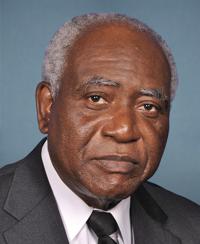0
0
0
PARENT Act of 2024
12/19/2024, 9:06 AM
Summary of Bill HR 8799
The PARENT Act of 2024, also known as Bill 118 hr 8799, is a piece of legislation introduced in the US Congress aimed at supporting and empowering parents in various aspects of their children's education. The bill focuses on providing resources and assistance to parents to help them navigate the education system and advocate for their children's needs.
One key provision of the PARENT Act is the establishment of a Parent Education and Resource Center in each state. These centers would serve as hubs for parents to access information, training, and support on topics such as special education services, school choice options, and parent engagement in schools. The centers would also provide assistance to parents in understanding and navigating the various federal and state education laws and regulations.
Additionally, the PARENT Act includes provisions to increase transparency and accountability in education by requiring schools to provide parents with clear and accessible information on their children's academic progress, school performance, and available resources. The bill also aims to strengthen parent-school partnerships by encouraging schools to involve parents in decision-making processes and to provide opportunities for parents to participate in school activities and events. Overall, the PARENT Act of 2024 seeks to empower parents to be more informed and engaged in their children's education, ultimately leading to improved outcomes for students. The bill is currently under consideration in Congress and has garnered bipartisan support for its efforts to support and uplift parents in their role as advocates for their children's education.
One key provision of the PARENT Act is the establishment of a Parent Education and Resource Center in each state. These centers would serve as hubs for parents to access information, training, and support on topics such as special education services, school choice options, and parent engagement in schools. The centers would also provide assistance to parents in understanding and navigating the various federal and state education laws and regulations.
Additionally, the PARENT Act includes provisions to increase transparency and accountability in education by requiring schools to provide parents with clear and accessible information on their children's academic progress, school performance, and available resources. The bill also aims to strengthen parent-school partnerships by encouraging schools to involve parents in decision-making processes and to provide opportunities for parents to participate in school activities and events. Overall, the PARENT Act of 2024 seeks to empower parents to be more informed and engaged in their children's education, ultimately leading to improved outcomes for students. The bill is currently under consideration in Congress and has garnered bipartisan support for its efforts to support and uplift parents in their role as advocates for their children's education.
Current Status of Bill HR 8799
Bill HR 8799 is currently in the status of Bill Introduced since June 21, 2024. Bill HR 8799 was introduced during Congress 118 and was introduced to the House on June 21, 2024. Bill HR 8799's most recent activity was Referred to the Subcommittee on Work and Welfare. as of December 17, 2024
Bipartisan Support of Bill HR 8799
Total Number of Sponsors
2Democrat Sponsors
2Republican Sponsors
0Unaffiliated Sponsors
0Total Number of Cosponsors
1Democrat Cosponsors
0Republican Cosponsors
1Unaffiliated Cosponsors
0Policy Area and Potential Impact of Bill HR 8799
Primary Policy Focus
Crime and Law EnforcementAlternate Title(s) of Bill HR 8799
To amend section 439 of the Social Security Act to authorize the funding of demonstration projects to test approaches for supporting and improving relationships between incarcerated parents and children in foster care, and for other purposes.
To amend section 439 of the Social Security Act to authorize the funding of demonstration projects to test approaches for supporting and improving relationships between incarcerated parents and children in foster care, and for other purposes.
Comments
Sponsors and Cosponsors of HR 8799
Latest Bills
Providing amounts for the expenses of the Committee on Ethics in the One Hundred Nineteenth Congress.
Bill HRES 131December 12, 2025
Providing for congressional disapproval under chapter 8 of title 5, United States Code, of the rule submitted by the Bureau of Land Management relating to "Central Yukon Record of Decision and Approved Resource Management Plan".
Bill HJRES 106December 12, 2025
Expressing the sense of the House of Representatives in condemning the Government of the People's Republic of China for its harassment and efforts to intimidate American citizens and other individuals on United States soil with the goal of suppressing speech and narratives the People's Republic of China finds unwelcome.
Bill HRES 130December 12, 2025
Providing for congressional disapproval under chapter 8 of title 5, United States Code, of the rule submitted by the Bureau of Land Management relating to "North Dakota Field Office Record of Decision and Approved Resource Management Plan".
Bill HJRES 105December 12, 2025
Providing for congressional disapproval under chapter 8 of title 5, United States Code, of the rule submitted by the Bureau of Land Management relating to "Miles City Field Office Record of Decision and Approved Resource Management Plan Amendment".
Bill HJRES 104December 12, 2025
Providing amounts for the expenses of the Select Committee on the Strategic Competition Between the United States and the Chinese Communist Party in the One Hundred Nineteenth Congress.
Bill HRES 104December 12, 2025
Critical Access for Veterans Care Act
Bill S 1868December 12, 2025
OATH Act of 2025
Bill S 1665December 12, 2025
A bill to extend the authority for modifications to the Second Division Memorial in the District of Columbia.
Bill S 1353December 12, 2025
Saving Our Veterans Lives Act of 2025
Bill S 926December 12, 2025

